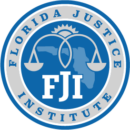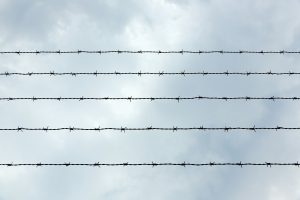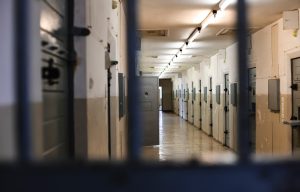April 22, 2025— As local governments grapple with enforcement of a new state law banning people from sleeping in public spaces, several advocacy groups have launched a campaign to urge Florida cities and counties to choose constructive solutions to homelessness over the criminalization of life-sustaining conduct.
In coordination with a nationwide day of action marking the one-year anniversary of the oral argument in City of Grants Pass v. Johnson, the National Homelessness Law Center, Southern Legal Counsel, Southern Poverty Law Center, and Florida Justice Institute have issued joint letters to 21[1] Florida cities and counties that have either passed local ordinances to comply with the new Unauthorized Public Camping and Public Sleeping law, or begun enforcing ordinances already on the books.
“We first emphasize that there is nothing in the new law that requires local governments to arrest unsheltered individuals for sleeping or camping outdoors or to otherwise criminalize life-sustaining conduct,” the organizations told mayors, county chairs, commissioners and other local government officials across the state, from Miami to Pensacola. “Fla. Stat. § 125.0231 allows each county or municipality to choose how it will comply with the law. And there are myriad options that do not involve criminalizing individuals experiencing homelessness for existing in public spaces.”
Evidence shows that these policies do not reduce homelessness, do not increase public safety, and make us all less healthy. Rather, they undermine service providers seeking to aid clients.
“Even a short stay in jail can lead to loss of possessions, employment, healthcare, shelter, and services,” the letters state.
"Nobody should live outside. We know that addressing homelessness with jail, fines, and tickets wastes taxpayer money and makes homelessness worse. To actually solve homelessness, elected officials must address the true cause of homelessness–the dire lack of housing that people can afford. Inflation, tariffs, and skyrocketing rents will force even more people into homelessness. Now is the time for proven solutions–like housing and support–not for wasteful, backwards, and counterproductive approaches like jails and fines. Real leaders focus on supporting those in need of help, not throwing them in jail."
Michael Langley, Florida Justice Institute Executive Director
The advocacy groups cite evidence that short-term solutions such as sanctioned encampments and emergency shelters are not effective when compared to providing affordable and permanent supportive housing, a policy known as Housing First. The organizations urge cities to consider cost-effective solutions such as those utilized by cities from Jacksonville, Fla., to Houston, Texas, where a Housing First approach has resulted in substantial savings as well as reduced homelessness.
The organizations also share several best practices for implementing the new law, which include: developing a credible plan for affordable housing; respecting the property rights of unhoused community members if conducting encampment sweeps; allowing private property owners to meet the needs of the unhoused community while long-term solutions are being implemented; and clearly articulating the rights of unhoused community members to exist in public spaces to reduce the likelihood of unnecessary interactions with police.
“We hope that Florida’s city and county officials will recognize that this new state law does not require anyone to arrest people for merely trying to survive while experiencing homelessness,” said Southern Legal Counsel Legal Director Chelsea Dunn. “Local governments can still utilize effective long-term solutions such as providing affordable permanent housing and other supportive services, which has been shown to work. And they can work with their communities to create humane near-term solutions while working toward more permanent ones.”
[1] Read the letters sent to each locality: Avon Park, Bunnell, Broward County, Clearwater, Flagler County, Fort Lauderdale, Fort Myers, Jacksonville, Jacksonville Beach, Largo, Leesburg, Miami Beach, Naples, Okaloosa, Orlando, Palm Beach County, Pensacola, Sarasota, St. Petersburg, Tampa, and West Palm Beach.
###
Southern Legal Counsel is a statewide, nonprofit law firm that works proactively to ensure fairness, social justice, and government accountability for Floridians through focused, high-impact initiatives, policy advocacy, and civil litigation.
Florida Justice Institute (FJI) is an award-winning nonprofit, public interest law firm that uses impact litigation and advocacy to improve the lives of Florida’s disenfranchised residents and underinvested communities while preserving human rights in the justice system, empowering vulnerable populations experiencing homelessness and poverty, and providing dignity for people with disabilities. FJI has filed and prevailed in numerous civil rights lawsuits challenging unconstitutional ordinances that criminalize lifestyle, identity, and/or circumstances.
The Southern Poverty Law Center is a catalyst for racial justice in the South and beyond, working in partnership with communities to dismantle white supremacy, strengthen intersectional movements, and advance the human rights of all people.
The National Homelessness Law Center is committed to protecting the rights of unhoused people across the United States and to advocating for policies that prevent and end homelessness, ensuring that all people have access to safe and adequate housing.



